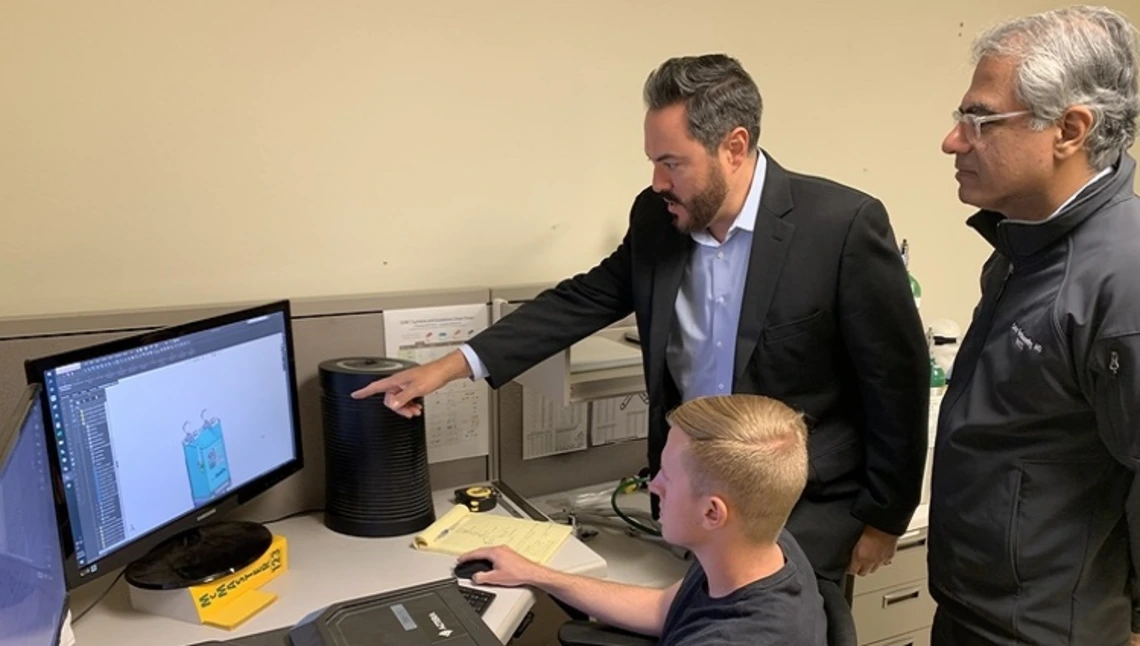Slepian On Team Developing Invention To Help COVID-19 Patients

Researchers from multiple University of Arizona colleges are developing a new respiratory-assist device that provides fast, safe relief to those experiencing difficulty breathing due to COVID-19.
Among this interdisciplinary team are Marvin Slepian, clinical professor of BME and Regents Professor of the BIO5 Institute, and Dr. Sairam Parthasarathy, professor of medicine and chief of the UA Division of Pulmonary, Allergy, Critical Care and Sleep Medicine.
One of the major complications of COVID-19 is that it causes inflammation in the respiratory tract and lungs that can lead to life-threatening pneumonia. In such cases, the fast and safe application of a RAD can make the difference between life and death.
In response, the researchers are developing a small-scale, low-pressure "heliox rebreathing" system that simultaneously removes carbon dioxide while appropriately adjusting for humidity as it recirculates gases in a closed system.
Heliox systems work by mixing helium and oxygen – a combination that has a lower density than the normal air we breathe – allowing the gas to flow through the respiratory airways with less resistance and lowering the amount of work needed for breathing.
Parthasarathy said the team originally developed the RAD as an at-home device for asthma and chronic obstructive pulmonary disease patients.
"Then COVID hit," he said. "And we saw that we could have a huge impact if we could make this available quickly to clinicians and first responders."
"Institutions around the world are working around the clock to respond to the current crisis," said Doug Hockstad, assistant vice president of Tech Launch Arizona, the university's commercialization unit. "We've been working with this team for several months, and are thrilled that they've been able to see the current need and aggressively pivot to supply this solution at such an urgent time."
UA President Dr. Robert C. Robbins praised the team for leveraging its work to help address COVID-19.
"I applaud the members of this team for reimagining their existing technologies in a way that helps address the critical needs of our community during this unprecedented health crisis," Robbins said. "I am incredibly proud of the innovative thinking and tireless dedication of our researchers who have immediately responded to address this most-pressing challenge."
